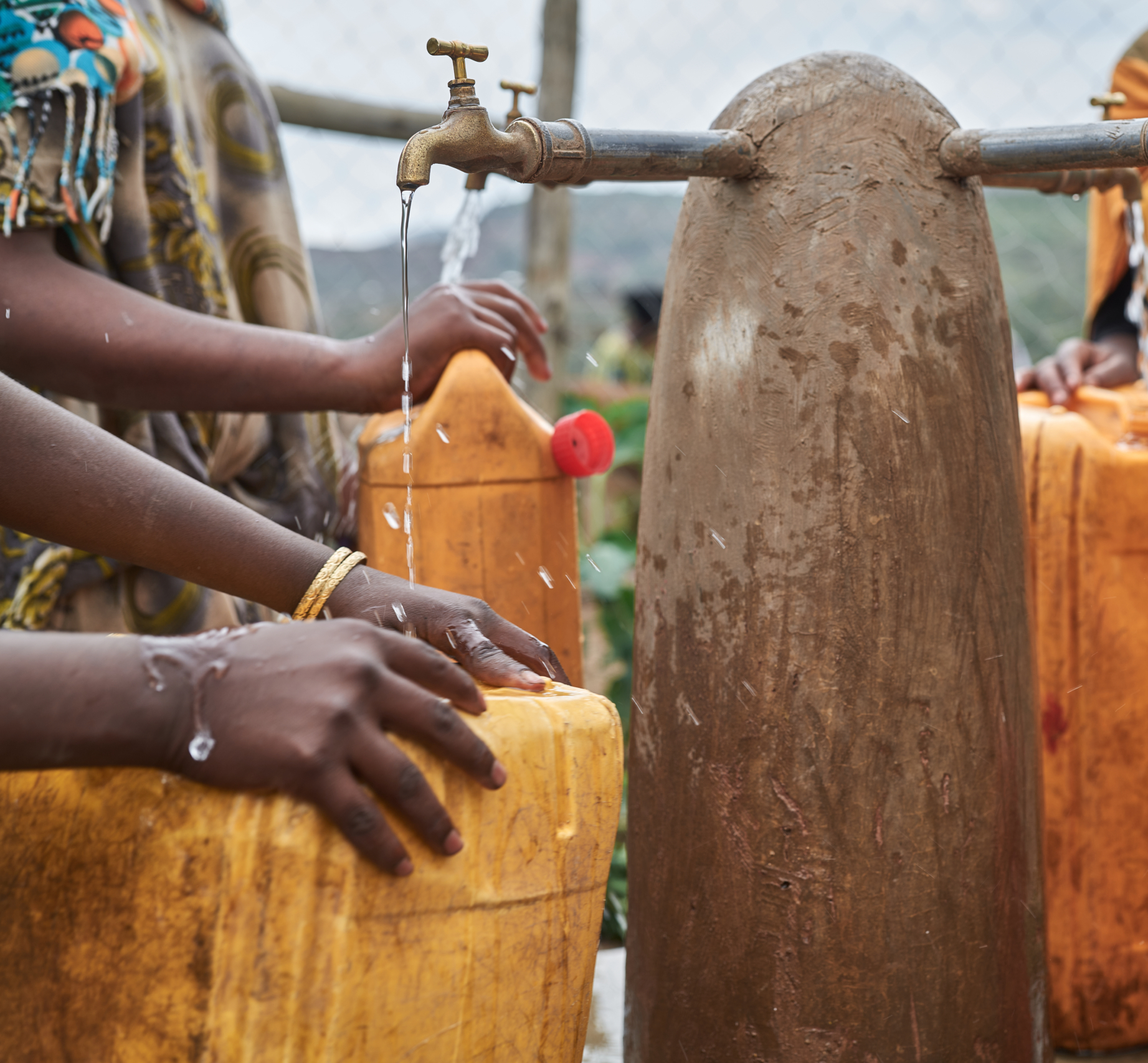
Leaders don’t often aim to put their own organization out of business, but that’s just what Matt Hangen is working toward. Matt is the CEO of a nonprofit working on sustainable models for delivering clean water in developing nations, and the way he sees it, if his organization is successful, then its services will no longer be needed.
Matt’s organization, Water4, is working to bring piped water to homes in rural areas in Ghana, and this reflects a new trajectory that the WASH industry in sub-Saharan Africa is taking—toward sustainable, paid, piped systems.
In Ghana more than 8 out of 10 households in urban areas get their water from pipes or from sachets, which are small, sealed bags of drinking water that are common in West Africa. In rural areas, that figure drops to 4 out of 10 households, with another 3 of 10 households fetching water from boreholes—shafts drilled into the earth to access water, which is brought up by a pump.
People in rural areas have always wanted water piped to their homes, the same as urban residents. But it has often been assumed that delivering piped water to rural areas would be prohibitively expensive or that people would not be willing to pay for water.
Numerous WASH (water, sanitation, and hygiene) programs have largely focused on improving access to safe water, basic sanitation, and hygiene, and boreholes for water are common projects. Boreholes enable residents to collect clean water at designated spots in the community, but collecting water each day is inconvenient and takes time—a burden that falls primarily on women and girls and prevents them from attending school and holding jobs. Boreholes also require that the community operate, maintain, and provide repairs, which locals frequently are not able to do. As a result, many boreholes are not sustainable.
Over time, it has become clear that the problem isn’t the lack of a market. Rural Ghanaians are willing to pay for clean water—even if they have limited financial resources—when the service is efficient, reliable, and easily accessible. In response, organizations are working to leapfrog the borehole model and, through innovation, provide clean, piped water to homes at an affordable price.
In sub-Saharan Africa, we are on the lookout for sustainable WASH projects that are meeting market demand through innovation, and we are also funding those that collaborate with governments and communities to ensure that no one is left behind.
Taking advantage of economies of scale, Water4 engineered its system to deliver clean water at a cost of 4 cents per day per person. It worked with the government of Ghana, and created a local enterprise, 4Ward West Africa, as the service provider. The project that Helmsley funds now provides water to 75,000 people and employs 156 full time and contracted staff.
We also support Safe Water Network in its work to bring piped water connections to homes and businesses in Ghana. The organization already provides connections to half a million Ghanaians who live in communities of 3,000 to 5,000 people, using a market-based approach that includes local ownership, prioritizes management efficiency, and builds local capacity for operating the system.
Through a Helmsley-funded project, Safe Water Network will bring water services to 34,800 low-income residents in underserved areas in the Bono, Ahafo, and Ashanti regions of Ghana.
Access to safe water is a basic human right, and we can harness the entrepreneurialism in local communities to develop the water infrastructure. Philanthropic organizations must play a role in accelerating this development.